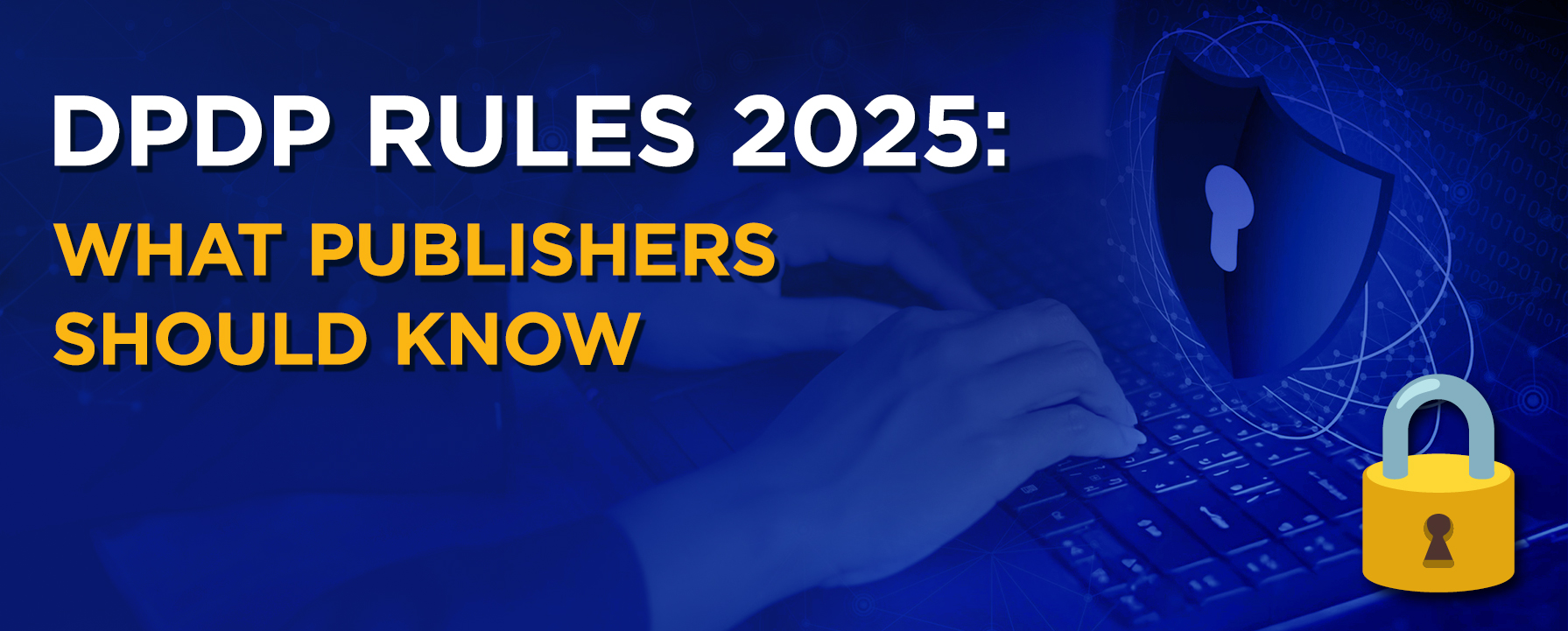
New Regulations and Their Impact on Digital Publishers
The Digital Personal Data Protection (DPDP) Rules, 2025, introduced under the Digital Personal Data Protection Act (DPDPA), 2023, mark a significant step in strengthening India's data privacy landscape. Designed to empower individuals while ensuring businesses operate within a responsible data governance framework, the latest rules introduce stringent security measures, enforcement protocols, and a digital-first approach to regulatory compliance.
Understanding Digital Privacy
In an increasingly digital world, privacy now encompasses the protection of personal data in online spaces. Digital privacy refers to an individual’s right to control how their personal information is collected, used, shared, and stored. Recognizing the critical role of data privacy, countries worldwide have adopted various regulations such as the EU’s GDPR, US's CCPA, and India’s DPDPA to safeguard individuals’ rights. These regulations aim to ensure transparency, accountability, and consent-driven practices.
How Digital Publishers Will Be Affected
For digital publishers, these new rules bring about significant changes in data collection, consent management, and compliance obligations. Key impacts include:
-
User Consent Requirements: Publishers must offer transparent and easy-to-understand details on how personal data is handled, allowing individuals to give informed consent.
-
Data Retention and Erasure Obligations: Publishers can no longer store user data indefinitely and must establish structured mechanisms for data deletion upon request.
-
Transparency in Targeted Advertising: Publishers relying on targeted advertising must clearly disclose data usage policies and offer opt-out options to users.
-
Heightened Security Standards: Encryption, breach notification within 72 hours, and strict access controls must be implemented to protect user data.
-
Parental Consent for Minors: If publishers handle children’s data, they must obtain verifiable parental consent and apply additional safeguards.
Balancing Content Monetization with Compliance
The DPDP Rules, 2025, will require digital publishers to rethink their monetization strategies while ensuring compliance. Key considerations include:
-
Programmatic Advertising and Data Collection: Ad networks and publishers must ensure that data used for targeting aligns with the new privacy mandates.
-
First-Party Data Strategies: Publishers may need to focus on direct user relationships and first-party data collection rather than relying on third-party cookies.
-
Compliance Burden on Small and Medium Publishers: While startups and MSMEs face reduced compliance burdens, those classified as Significant Data Fiduciaries must conduct annual audits and data protection impact assessments.
-
Cross-Border Data Transfers: Publishers working with global partners must comply with new data transfer protocols and implement necessary safeguards.
Navigating the Digital-First Compliance Framework
The DPDP Rules introduce a “Digital by Design” approach, impacting digital publishers in the following ways:
-
Automated Consent Mechanisms: Publishers must implement user-friendly consent and opt-out mechanisms for data collection.
-
Grievance Redressal Requirements: Digital publishers must establish efficient systems to address user complaints and data concerns promptly.
-
Data Protection Board Interactions: In case of non-compliance or user grievances, publishers may need to engage with the Data Protection Board, which operates digitally for faster dispute resolution.
Challenges and Opportunities for Publishers
While these regulations enhance user trust, they also introduce challenges:
-
Adapting to Cookieless Advertising: Publishers must explore alternative monetization models that do not rely heavily on third-party tracking.
-
Increased Compliance Costs: Implementing new data governance and security measures may require additional investment.
-
Opportunities in Privacy-Focused Innovation: Publishers that proactively adopt privacy-first strategies can differentiate themselves and build stronger user loyalty.
The Road Ahead for Digital Publishers
As India cements its leadership in digital governance, publishers must swiftly adapt to the evolving DPDP Rules, 2025. Industry players were encouraged to participate in ongoing consultations, with the Ministry of Electronics and Information Technology (MeitY) inviting feedback on the draft rules until February 18, 2025, via the MyGov platform.
The coming months will determine how publishers adjust their business models while ensuring compliance and maintaining a balance between user privacy and digital advertising revenues. Publishers that embrace these changes proactively will not only stay compliant but also strengthen audience trust and long-term sustainability in India’s evolving digital ecosystem.
Conclusion
DPDPA is a pivotal step in India’s journey toward a digital ecosystem that values both empowerment and privacy. By defining clear responsibilities for businesses and empowering individuals with comprehensive rights, the Act sets a framework for trust in the digital age.
For individuals, it ensures greater control and transparency over personal data, creating an environment where data protection becomes a shared priority. For businesses, DPDPA challenges them to adopt a privacy-first approach, emphasizing compliance, security, and user-centric practices. As India positions itself as a global leader in data protection, the DPDPA reflects the nation’s commitment to balancing technological growth with individual privacy rights.
